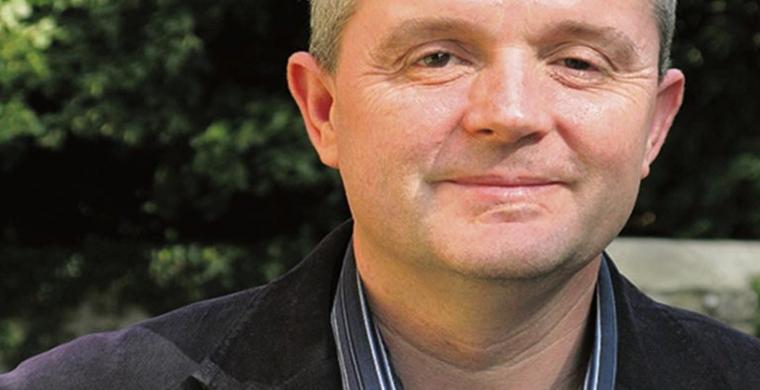Martyn Percy's Marxist methodology in smearing orthodox Anglicans
by Julian Mann,
www.virtueonline.org
March 27, 2018
In an article for the Modern Church about the recent Independent Inquiry into Child Sex Abuse in the Church of England, the Dean of Christ Church Oxford, the Very Revd Martyn Percy, has used Marxist methodology to smear orthodox Anglicans.
He wrote:
'The Church of England has not even begun to reckon with the ecclesial ethos and traditions that offered the best petri-dishes for developing and growing cultures of abuse. For decades, it has been easy for the church to point the finger of blame at liberals for lax standards and moral lapses. But the cultures of sexual abuse grew most successfully in traditionalist strains of Anglo-Catholicism (e.g. Bishop Peter Ball) and Biblicist strains of Conservative Evangelicalism (e.g. John Smyth of Iwerne Camps). There are common denominators between these two ecclesial cultures. They deny women equality. They are squeamish about sexuality. They sacralise ambiguity. They put their leaders on unimpeachable pedestals. The worst abuses flourish in the cultures that are self-righteous.'
Before responding to the main accusation that Dr Percy seeks to make, it is important first to highlight a serious lack of clarity in the above paragraph.
The Iwerne camps attended by serial abuser John Smyth were not part of the Church of England. They were run under the auspices of the Scripture Union and had their own fundraising arm, the Iwerne Trust, of which Smyth was chairman from 1974 to 1981. Smyth did not abuse boys at the camps, but at his home. Whilst the Iwerne leadership should have reported him to the police before he had the chance to flee the country, it is clear that his actions, when discovered, horrified his peers and were never justified by the theology of the camps, as Dr Percy insinuates.
It is important for the sake of justice to point this out. By naming 'John Smyth of Iwerne Camps' as representative of a strain of 'Biblicism' which the Church of England must reckon with, Dr Percy is effectively accusing people who attend conservative evangelical churches across the nation of being responsible for creating a culture in which Smyth-like abuse flourishes. That is to smear many thousands of faithful Anglicans who are deeply concerned for the spiritual, emotional and physical welfare of children and young people. And it is to take the spotlight off cultural and institutional failures, bearing no relation to theological views, which allowed abuse to continue in other contexts, such as in the BBC.
But to address Dr Percy's main point that the two ecclesial cultures which hold to the traditional Christian stance on human sexuality, namely Anglo-Catholicism and Conservative Evangelicalism, are to blame for allowing the worst abuses to flourish:
First, those members of the Church of England, particularly in the Diocese of Chichester, who committed sexual abuse were acting against the traditional Christian teaching they professed to believe. That teaching is summarised in Canon B30 of the Church of England, Of Holy Matrimony:
'The Church of England affirms, according to our Lord's teaching, that marriage is in its nature a union permanent and lifelong, for better for worse, till death them do part, of one man with one woman, to the exclusion of all others on either side, for the procreation and nurture of children, for the hallowing and right direction of the natural instincts and affections, and for the mutual society, help and comfort which the one ought to have of the other, both in prosperity and adversity.'
If the individuals guilty of sexual abuse had chosen to obey this teaching, they would not have committed the terrible evils that they did.
Secondly, the current teaching of the Church of England on the heterosexual nature of marriage and the wrongness of sex outside marriage transcends party labels. Whatever churchmanship label an individual Anglican may choose to attach to him or herself, this is the Church of England's understanding of the Lord Jesus Christ's teaching in the Bible.
The General Synod may vote to change this definition of marriage and what constitutes the hallowing and right direction of the natural instincts and affections but for the time being Canon B30 remains the official stance of the Church of England.
By smearing those Anglicans who wish to uphold Canon B30, Dr Percy is taking a Marxist approach in two ways. First, he seems to be working with the assumption that the State rather than personal morality is the best guardian against abuse. Recent revelations would indicate that the State is incapable of preventing abuse and that a return to biblical morality is urgently needed in British society.
Secondly, in speaking of 'petri-dishes for developing and growing cultures of abuse' he is following the Marxist practice of defining people by grouping them together in cultural categories rather than seeing people as individuals, made in the image of God, who are accountable to Him as their Creator and Redeemer.
This article was first posted on Anglican Mainstream and is reposted with permission














